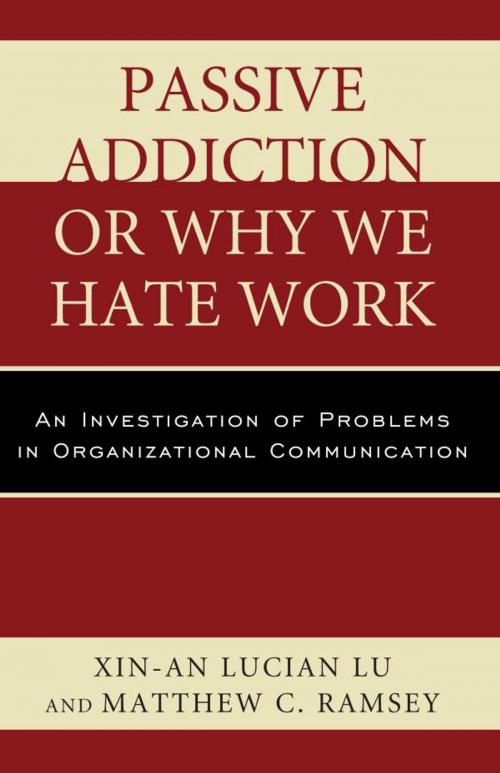Passive Addiction or Why We Hate Work
An Investigation of Problems in Organizational Communication
Business & Finance, Management & Leadership, Management Science, Human Resources & Personnel Management, Organizational Behavior, Management| Author: | Xin-An Lucian Lu, Matthew C. Ramsey | ISBN: | 9780761861645 |
| Publisher: | UPA | Publication: | July 5, 2013 |
| Imprint: | UPA | Language: | English |
| Author: | Xin-An Lucian Lu, Matthew C. Ramsey |
| ISBN: | 9780761861645 |
| Publisher: | UPA |
| Publication: | July 5, 2013 |
| Imprint: | UPA |
| Language: | English |
This work examines various organizational problems that contribute to the phenomenon of passive addiction, problems so entrenched and quotidian that they no longer register in the organizational consciousness as problems. Passive addiction refers to the phenomenon in which the individual is addicted to various forms of passivity (e.g., procrastination, effortless and vacuous behaviors) as refuge from work one dislikes. Xin-An Lucian Lu and Matthew C. Ramsey investigate the dichotomization between work and life, ill-designed evaluation, the divorce between purpose and action, overemphasis of extrinsic order, the crisis of credibility, and the overuse of management over leadership. Technological and economic changes in the future may lead to the emergence of active addiction, a state of work that is blended with life and is actively embraced by the worker with a spirit of creativity and innovation.
This work examines various organizational problems that contribute to the phenomenon of passive addiction, problems so entrenched and quotidian that they no longer register in the organizational consciousness as problems. Passive addiction refers to the phenomenon in which the individual is addicted to various forms of passivity (e.g., procrastination, effortless and vacuous behaviors) as refuge from work one dislikes. Xin-An Lucian Lu and Matthew C. Ramsey investigate the dichotomization between work and life, ill-designed evaluation, the divorce between purpose and action, overemphasis of extrinsic order, the crisis of credibility, and the overuse of management over leadership. Technological and economic changes in the future may lead to the emergence of active addiction, a state of work that is blended with life and is actively embraced by the worker with a spirit of creativity and innovation.















